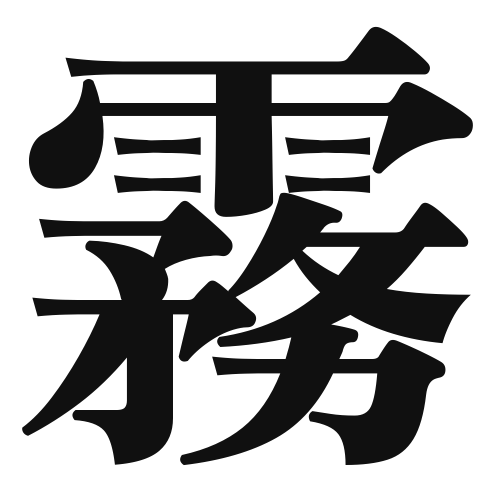1. Overview of Meaning
The kanji “霧” (pronounced “kiri” in Japanese) means “fog” or “mist.” It refers to a weather phenomenon where tiny water droplets are suspended in the air, reducing visibility.
2. Formation and Radical
The kanji “霧” is a compound character (会意文字) that combines two elements: the radical for “rain” (雨) and the character for “to be confused” (勿). This combination reflects the idea of obscured visibility due to moisture in the air.
The radical of “霧” is 雨, which is commonly associated with weather-related characters.
3. Examples of Usage
Common words and phrases that include “霧” are:
- 霧雨 (きりさめ, kirisame) – drizzle or light rain
- 霧深い (きりぶかい, kiribukai) – thick fog
Example sentence in daily conversation:
「今日は霧が出ているので、運転に気をつけてください。」
(“There is fog today, so please be careful while driving.”)
4. Synonyms and Antonyms
Similar kanji with related meanings include:
- 雲 (くも, kumo) – cloud, which refers to a visible mass of condensed water vapor in the atmosphere.
- 霧 (きり, kiri) specifically refers to fog, which is denser and closer to the ground.
Antonyms include:
- 晴れ (はれ, hare) – clear or sunny weather, indicating the absence of fog or mist.
5. Cultural and Historical Background
In Japanese culture, fog is often associated with mystery and beauty. It can symbolize the transient nature of life, as it obscures visibility and creates an ethereal atmosphere.
Proverbs and idiomatic expressions related to fog include:
- 「霧の中の道」(きりのなかのみち, kiri no naka no michi) – “a path in the fog,” which can symbolize uncertainty in life.
